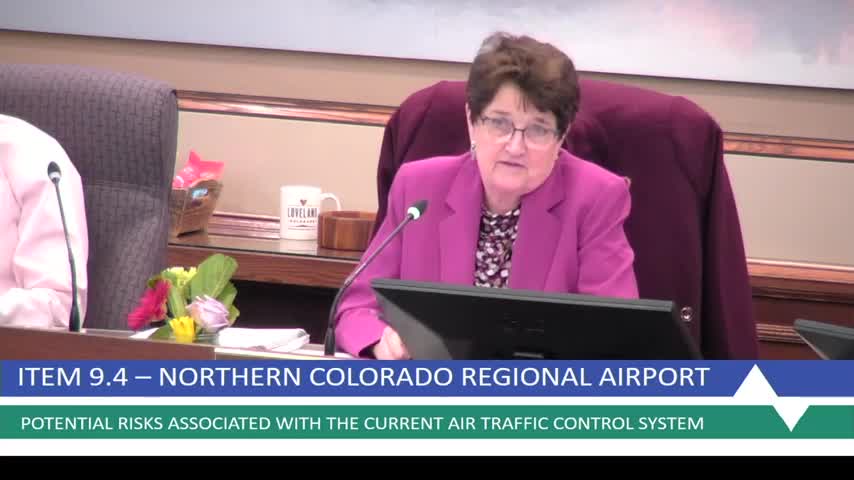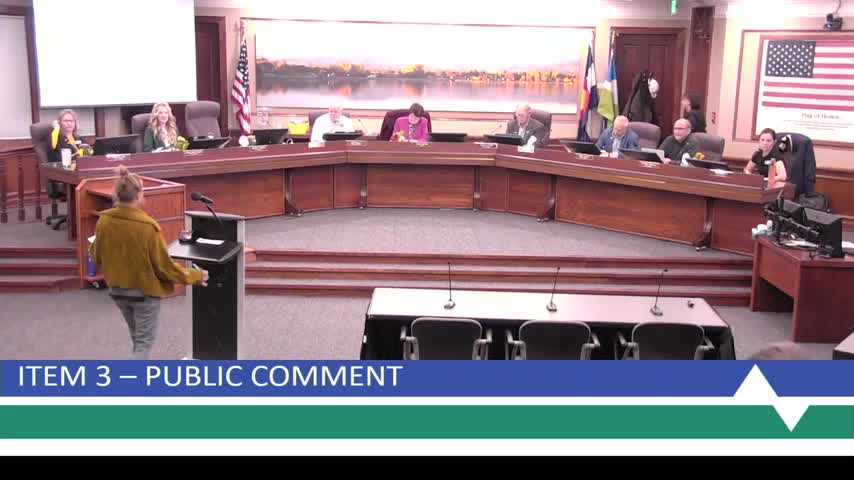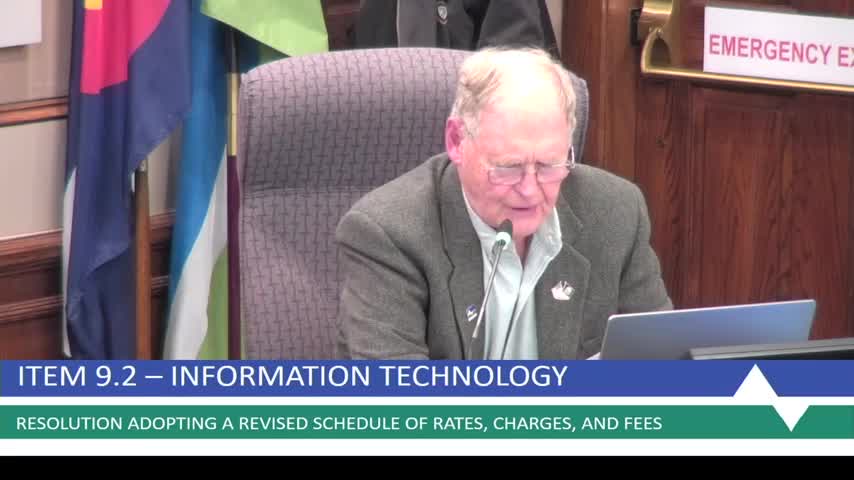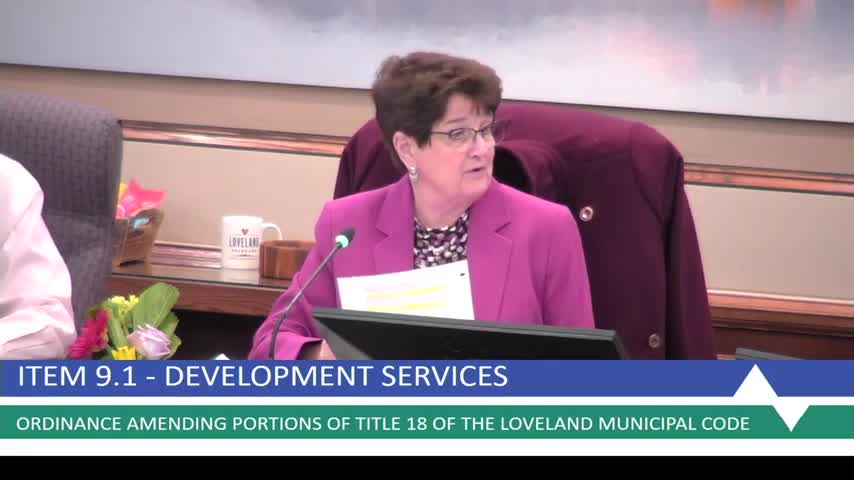Article not found
This article is no longer available. But don't worry—we've gathered other articles that discuss the same topic.

Loveland urges FAA to restore radar at Northern Colorado Regional Airport; council weighs traditional tower

Residents press council on homelessness and shelter siting; opinions clash over First Christian Church site

Council approves technology fee to fund new permitting system; exemption attempt for single‑family permits fails

